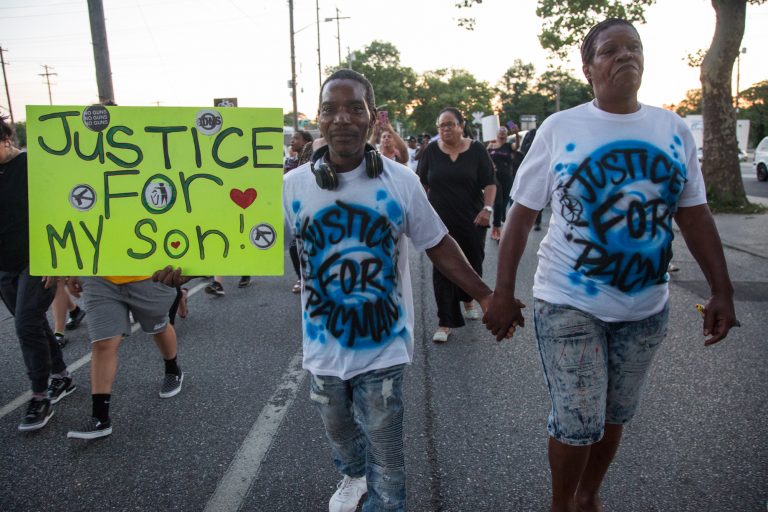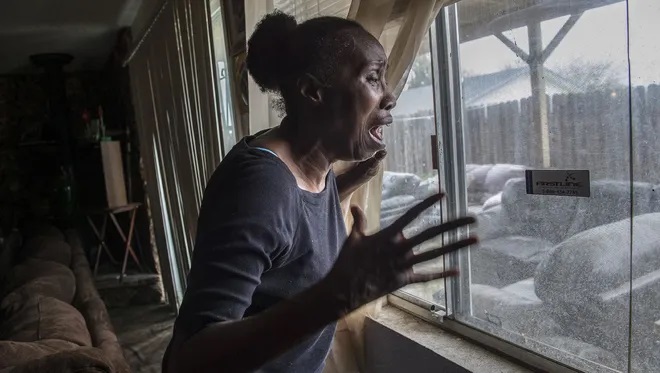Does her case prove systemic racism is real?
By Jeff Thomas
Lately phrases like “systemic racism” and “criminal justice reform” have become common. People use them frequently on TV, radio, in articles. They are everywhere. But what is systemic racism and are there any real examples? Is criminal justice reform just a catchy phrase? Does the phrase ignite emotion? Is there a fix? Do they even need to be fixed?
Many argue that there is no such thing as systemic racism. Harvard professor Harvey Mansfield writes in The Wall Street Journal that the phrase confusedly “describes a society that is so little racist that no one can respectably advocate racism, yet so much racist that every part of it is soaked with racism,” leaving us with “the paradox of a racist society without racists.”
William Briggs points out with the plethora of diversity offices in most every institution there is evidence for the existence of systemic support for Blacks in America. Still we constantly hear about the need for criminal justice reform based upon the existence of systemic racism.
However, undeniable disparities exist in every American sector . Whether we are talking about income, housing, health, life expectancy, educational outcomes, or incarceration the disparities are stark and enduring. So, at best, systemic racism is hard to define. Seemingly systemic racism is an idea that many can comprehend but few can define adequately.
How to Explain it
The recent death of Breonna Taylor sheds some light on existence of systemic racism and the need for criminal justice reform. Based upon the current configuration of the system, the police do get off on a technicality. And based upon the current criminal justice system, Kentucky AG Daniel Cameron was probably correct in not charging the officers with murder, even though they murdered an innocent woman who was in her bed and posed no threat to them. Such a system needs immediate reform.
RELATED: 18 Examples of Racism in America’s Criminal Justice System
Baked into our criminal justice system is the war on drugs, no knock warrants, judges who sign them, all too eager and biased police. Look at drugs. Black and white Americans sell and use drugs at similar rates. Yet black Americans are 2.7 times as likely to be arrested for drug-related offenses. Black people get jail time. White people get drug rehab. This is one of the first racist differences in the system. In Louisville, White police officers rammed in Breonna Taylor’s door that night because they suspected drugs might be in the apartment. None were there.

CONFRONTATIONAL POLICING
Police are often confrontational in Black communities. In the suburbs, they tend to protect and serve. No knock warrants are an integral part of confrontational policing. No knock warrant execution almost always involves violence. Usually served in the early morning hours, police use the element of surprise and often gunfire to overwhelm suspects. No knock warrants are 25 times more likely to be granted in Black neighborhoods. White neighborhoods rarely see these violent and dangerous no knock warrants.
This type of police investigation puts both police and presumed innocent homeowners at risk. Judges who sign these warrants put people’s lives in danger. Usually no knocks are only an evidence collection procedure. I bet most of the judges who sign these warrants are not Black and do not live in these neighborhoods. The judge who signed the Breonna Taylor warrant was White and all his no knock warrants have been in Black neighborhoods. Judges are biased too!
Police Bias
Police know these are risky events. They enter with their guns locked and loaded. Officers are mentally and legally prepared. Bullet proof vests and legal precedents protect them. If fired upon they can legally shoot to kill. If threatened they can legally shoot to kill. Unsuspecting homeowners may stand their ground, like Breonna Taylor’s boyfriend did that night. But civilian death is often the result. White officers’ biases against Black people is well documented. Every day, thousands are protesting in the across America against racist policing.
RELATED: Anything but Justice
Systemic racism is the result of multiple layers of racism or bias combining from previous but related racist or biased systemic events. Criminal justice reform must address all levels.
So even though defining systemic racism is hard, the Breonna Taylor case is the perfect incarnation and proof positive.


Thank you!
we need to fix this. Thanks Jeff for bringing this!!
THIS IS A STUNNING WISE WOMAN ! SHARP AND ON THE MONEY…
THE NATIONAL MEDIA IS SCARED TO RUN HER ADS !!!!
SO,,, HERES ONE OF MANY !!!! YOU TUBE HER NAME AND GO TO HER VIDEOS,!
DO NOT WASTE TIME !!!
SEE THIS NOW — > https://www.youtube.com/watch?v=GPpGfx_BCWU
EXCELLENT
2020, 09-30
SO EZ TO SEE WHAT SYSTEMIC SLANDER IS,,, WHY IS IT EASY TO DECEIVE PEOPLE ?
CAN YOU SEE HOW TRUMP REFUSES TO ANSWER !!! DID YOU SEE IT?
LOOK CLOSE,,, LISTEN WELL,,, WATCH CONCENTRATE !!!
DO YOU NEED A HEARING AID?
https://www.youtube.com/watch?v=W7v_jDIqnyw
OCTOBER 01 2020
((( o o ))) < DID YOU PAY CLOSE ATTENTION ?
WHICH TV NEWS OR STATIONS OR CABLE CHANNELS ARE CASTING SPELLS ON THE
PEOPLE IN THE USA!
WHO IS TRYING HARD TO KEEP PEOPLE CHAINED TO THE PLANTATION FOR ANOTHER
47 YEARS WITH LIES AND BROKEN PROMISES?
ARE YOU READY FOR MORE ?
can a MIND be chained with words ?
LOOK what happened to Eve and Adam !!!!
[…] 6. Death of Breonna Taylor […]